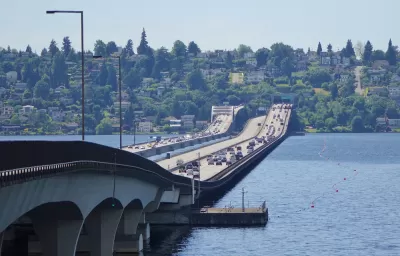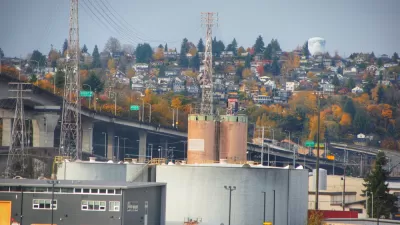After underestimating costs by hundreds of millions, Seattle is forced to cut back on proposed seismic improvements for the city's bridges.

The West Coast, nervously awaiting the catastrophic earthquake dubbed the "Big One," has spent years investing in improved earthquake safety and retrofitting infrastructure to withstand seismic destruction. Seattle promised to improve 16 of its bridges with modern earthquake safety mechanisms, but, after realizing it underestimated costs by hundreds of millions of dollars, the city is scaling back the work to only 11 bridges.
After reevaluating proposed costs for the bridge projects, the city realized it had vastly underestimated project costs and had received less than a tenth of the $37 million in federal grants and outside funding that they hoped would go toward seismic retrofitting. The expenses for the projected bridge work grew exponentially as engineers began analyzing the bridge foundations and surrounding soils. Improvements to the First Avenue South bridge, for example, jumped from $4 million to over $250 million, creating a huge gap in funding.
To move forward, the Seattle Department of Transportation plans to remove the most expensive bridges from its immediate plan and execute the work on others. The agency is drafting a new plan to address all of the city's bridges, slated to be ready by 2023.
FULL STORY: Seattle scales back earthquake work on city bridges as costs soar

Maui's Vacation Rental Debate Turns Ugly
Verbal attacks, misinformation campaigns and fistfights plague a high-stakes debate to convert thousands of vacation rentals into long-term housing.

Planetizen Federal Action Tracker
A weekly monitor of how Trump’s orders and actions are impacting planners and planning in America.

In Urban Planning, AI Prompting Could be the New Design Thinking
Creativity has long been key to great urban design. What if we see AI as our new creative partner?

King County Supportive Housing Program Offers Hope for Unhoused Residents
The county is taking a ‘Housing First’ approach that prioritizes getting people into housing, then offering wraparound supportive services.

Researchers Use AI to Get Clearer Picture of US Housing
Analysts are using artificial intelligence to supercharge their research by allowing them to comb through data faster. Though these AI tools can be error prone, they save time and housing researchers are optimistic about the future.

Making Shared Micromobility More Inclusive
Cities and shared mobility system operators can do more to include people with disabilities in planning and operations, per a new report.
Urban Design for Planners 1: Software Tools
This six-course series explores essential urban design concepts using open source software and equips planners with the tools they need to participate fully in the urban design process.
Planning for Universal Design
Learn the tools for implementing Universal Design in planning regulations.
planning NEXT
Appalachian Highlands Housing Partners
Mpact (founded as Rail~Volution)
City of Camden Redevelopment Agency
City of Astoria
City of Portland
City of Laramie




























